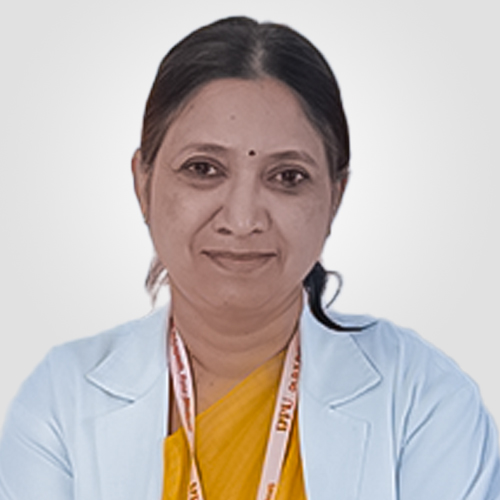Endometriosis Treatment in Sadashiv Peth, Pune
Endometriosis is a disorder where tissue growth occurs outside the uterus, such as the ovaries, tissue lining of the pelvis, and the bowel. The tissue is very similar to the uterine lining. Although it is not impossible, the endometrial tissue stays within the pelvic region. The endometrial tissue developing outside the uterus is known as called an endometrial implant, and the lining of the uterus is known as the endometrium. The endometrial-like tissue that's misplaced acts like how an endometrial tissue would. Every menstrual cycle, it thickens, breaks down, and then bleeds. However, this takes place within the body as it is trapped and has no place to go. The surrounding tissues are affected and can develop adhesions (abnormal collections of fibrous tissue) and scar tissue.
Symptoms
One of the main symptoms of endometriosis is pelvic pain and cramping, especially during the monthly period. People suffering from this condition also complain about the severity of pain, which usually increases over time. Some of the other symptoms include;
Dysmenorrhea: Dysmenorrhea is a condition where women experience severe pelvic pain and cramping almost a week before and after the period. It is also accompanied by sharp lower back pain and abdominal pain.
Pain During Intercourse: For women suffering from endometriosis, it is common to experience pain either before or after sex.
Pain During Urination Or Bowel Movements: Pain while urination or during the bowel movements occur during the active menstrual cycle.
Extreme Bleeding: Heavy periods or bleeding in between the cycle.
Infertility: When women get treated for infertility, in most cases, endometriosis is the culprit.
Along with the above symptoms, you may also experience extreme tiredness, constipation, diarrhea, nausea, and bloating during your menstrual cycle.
Request an appointment at Apollo Spectra Hospitals, pune
Call 1860-500-2244 to book an appointment
Causes
Although there is no exact reason as to what causes endometriosis, the factors that aid the condition include;
Retrograde Menstruation: Here, the period blood with endometrial cells flow via the fallopian tube and then the pelvic cavity and not out of the body as they are supposed to. The endometrial cells then stick to the pelvic walls, where they grow and thicken and bleed during each cycle.
Peritoneal Cells: The peritoneal cells line the inside layer of the abdomen. However, experts say that in a situation known as 'induction theory,' the peritoneal cells transform into endometrial cells.
Embryonic Cells: Estrogen, a hormone in the body, can transform embryonic cells into endometrial cells.
Surgical Scar: After undergoing surgery, such as hysterectomy, it is possible that endometrial cells may attach themselves to the surgical incision.
Cell Transport: The blood vessels can transport the endometrial cells to other parts of the body.
Immune System Disorder: If one is suffering from an immune system disorder, the body is unable to identify the endometrial-like tissue and destroy it.
Risk Factors
The factors that influence endometriosis include;
- Never given birth before
- If you are someone who has started their period at an early age
- If you have gone through menopause at an older age
- Short menstrual cycles, which occur less than 27 days
- If you experience heavy periods that last more than seven days
- High levels of estrogen in the body
- Low body mass index
- If you have a family history of endometriosis
- If you have any medical condition that prevents the normal passage of menstrual flow out of the body
- Abnormalities of the reproductive tract
Endometriosis only sets in after you have had periods for a few years now. The symptoms seem to get better during the pregnancy and go away once you reach menopause. But if you are taking estrogen, that might not be the case.
Diagnosis
If you have been experiencing the symptoms of endometriosis, your doctor will try to see any physical clues for the condition.
Pelvic Exam: During a pelvic exam, your doctor will check manually- by feeling the pelvic area- for any abnormalities in the reproductive organs.
Ultrasound: Using high-frequency sound waves, the inside of the reproductive organs is seen by the doctor. Here, a transvaginal ultrasound may also be recommended.
MRI Scan: It gives the surgeon detailed information about the size and location of the endometrial implants.
Treatment
Generally, to treat endometriosis, your doctor might suggest either medication or surgery, depending on the severity of the condition. Pain medication, such as nonsteroidal anti-inflammatory drugs may be prescribed along with hormone therapy if you aren’t trying to get pregnant. Hormonal therapy and constructive surgery can also be a part of the treatment.
Endometriosis can lead to troubles in conception. Therefore, your doctor might recommend visiting a fertility specialist to undergo treatment to help with pregnancy.
There are no home remedies to help you with the pain. However, to make it more comfortable, warm baths and heating pads can help.
If you notice endometriosis symptoms, you must visit a gynaecologist.
Symptoms
Our Doctors
DR. VINITA JOSHI
MBBS, MS (Ob & Gynae...
| Experience | : | 16 Yeras Experience |
|---|---|---|
| Speciality | : | Obstetrics and Gynae... | Location | : | Sadashiv Peth |
| Timings | : | Mon, Wed, Fri : 11:0... |
DR. VIDYA GAIKWAD
MBBS, MD - Obstetric...
| Experience | : | 34 Yeras Experience |
|---|---|---|
| Speciality | : | Obstetrics and Gynae... | Location | : | Sadashiv Peth |
| Timings | : | Available by prior a... |
DR. NITIN GUPTE
MBBS, MD-OBGY...
| Experience | : | 36 Yeras Experience |
|---|---|---|
| Speciality | : | Obstetrics and Gynae... | Location | : | Sadashiv Peth |
| Timings | : | Mon, Wed & Fri : 06:... |
DR. NEELA ASHOK DESAI
MBBS, MS ...
| Experience | : | 40 Yeras Experience |
|---|---|---|
| Speciality | : | Obstetrics and Gynae... | Location | : | Sadashiv Peth |
| Timings | : | Mon, Tue, Wed, Fri &... |
Our Top Specialities
NOTICE BOARD
CONTACT US
CONTACT US
 Book Appointment
Book Appointment





.svg)
.svg)
.svg)
.svg)








